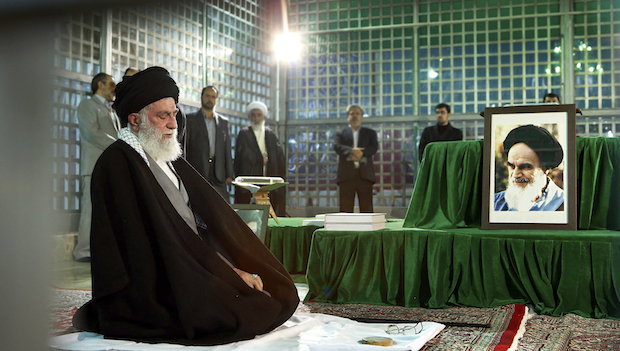There is an illusion that the promised agreement with Iran regarding its nuclear program will push it toward moderation, as well as economic and political openness. What will probably happen is the complete opposite. The agreement will empower Tehran’s hawks, who are currently being endorsed in Iran. They are bragging that most of the nuclear program has already been accomplished and that the West has finally submitted, and has abandoned sanctions.
During the past few months of international negotiations, Iran’s security apparatus has tightened around domestic opposition in a sign of the regime’s growing self-confidence. The Kurdish rebellion a week ago in the city of Mahabad, northwest Iran, was a protest against the practices of the security forces. A girl whom an intelligence officer tried to rape jumped off a balcony, and members of the Kurdish minority— whose population numbers around 8 million—revolted.
State cruelty is behind growing anger among the minority populations of this multi-ethnic state. In addition to the armed Iranian opposition (People’s Mujahedin of Iran), the number of anti-regime armed groups has increased.
The opposition in Tehran fears that signing the nuclear agreement with the West will, contrary to what is being promoted in Washington, serve the interests of regime hardliners. The struggle between moderates and hardliners within the state is no secret. The only time Iran has been led by a moderate since the Islamic Revolution was under popular leader Mohammad Khatami, who was president from 1997 until 2005.
Khatami was met by an expanded war being waged by the clerics against the entire moderate movement. He was replaced by extremist Mahmoud Ahmadinejad, who led Iran to its current situation of more extremism and militarism, and the instigating of wars in Iraq, Syria and Yemen.
The Iranian Revolutionary Guard is also active domestically in trying to suppress sedition, as it has done in Mahabad and Baluchistan province in the southeast. They have also increased their presence in Khuzestan province, where there is a restive Arab population. The government has previously faced considerable difficulties in taming its Azeri citizens in the northwest.
Tehran still remembers the huge uprising that erupted after the rigged elections in 2009, which lasted until February 2010. That revolt was led by reformists from within the regime, and they all ended up in jail.
By signing the nuclear agreement, the hardliners will feel more confident, aware that foreign threats will have been neutralized and that no one will be able to confront them. If Washington had linked the deal to conditions obliging Tehran to halt its military adventures in the Middle East in exchange for ending international sanctions and a pledge that the West will not militarily target Iran, the situation of the moderates within the theocratic regime may have been better.
The agreement will grant hardliners two gifts. The first is that lifting economic sanctions will fill their treasury with funds to manage their battles. The second is that they will have a stronger status within the regime and against moderate clerics and politicians.
